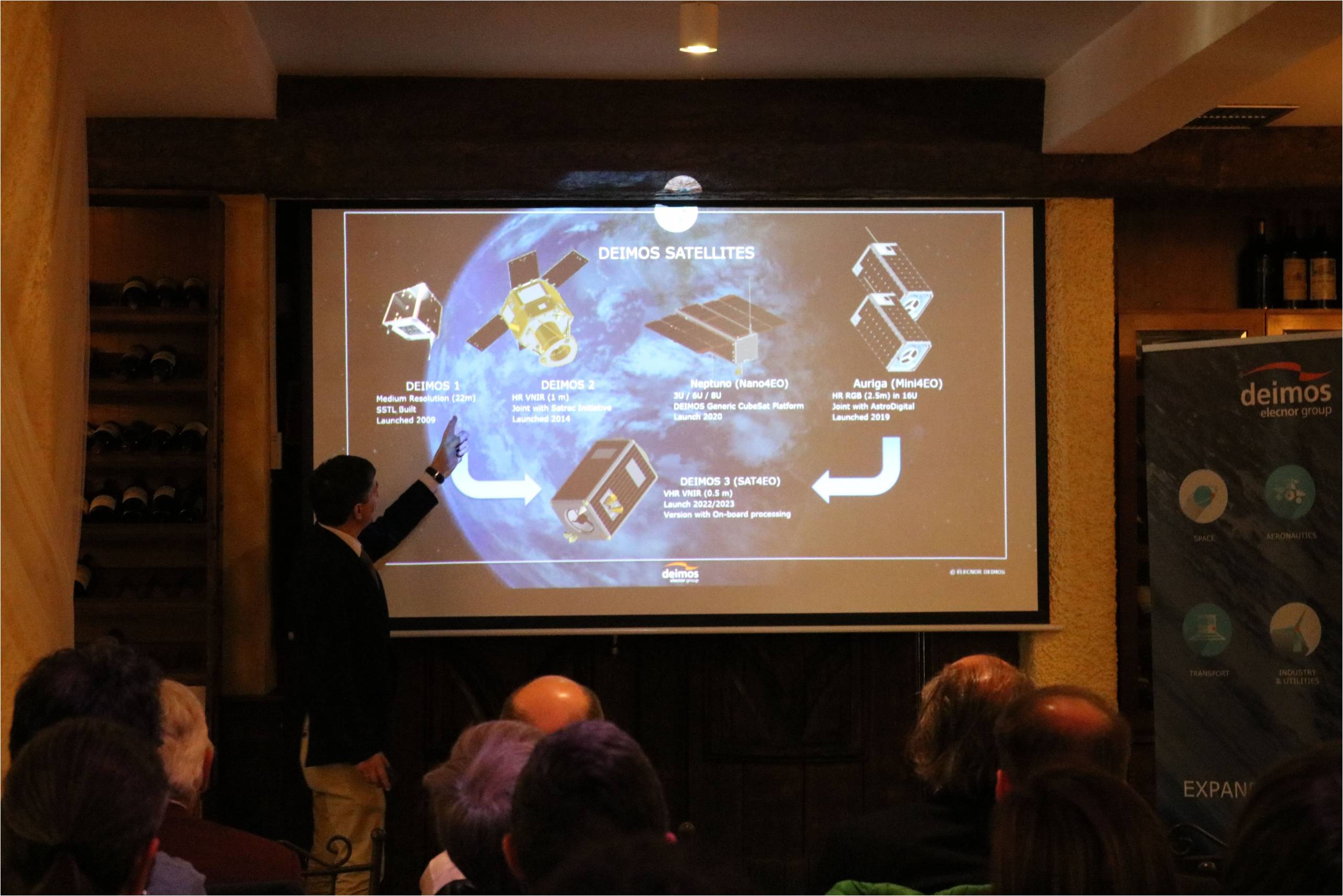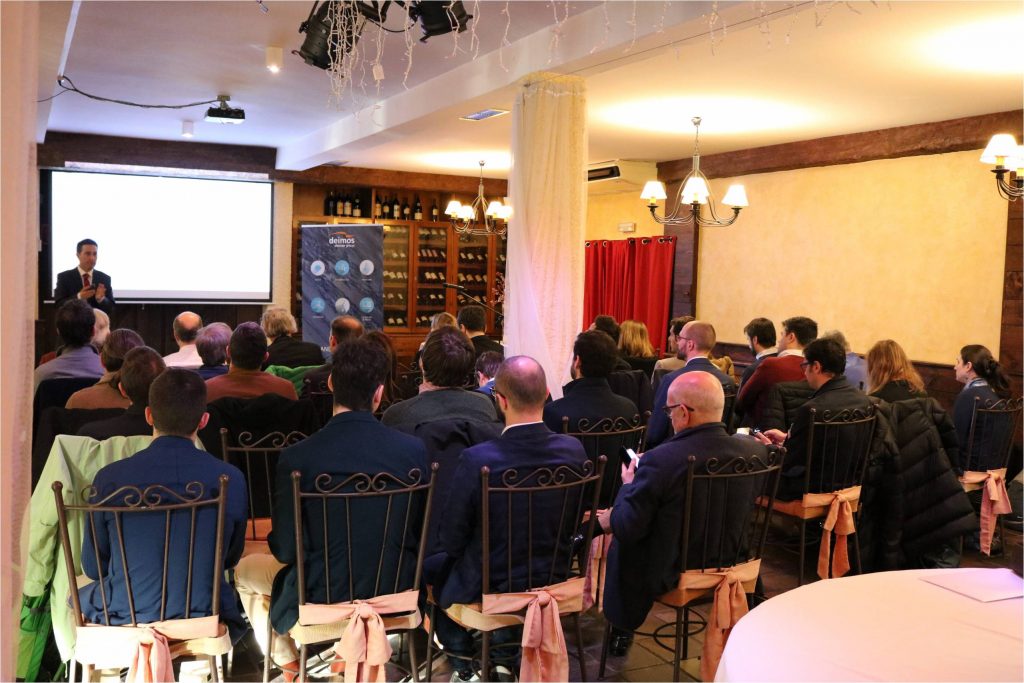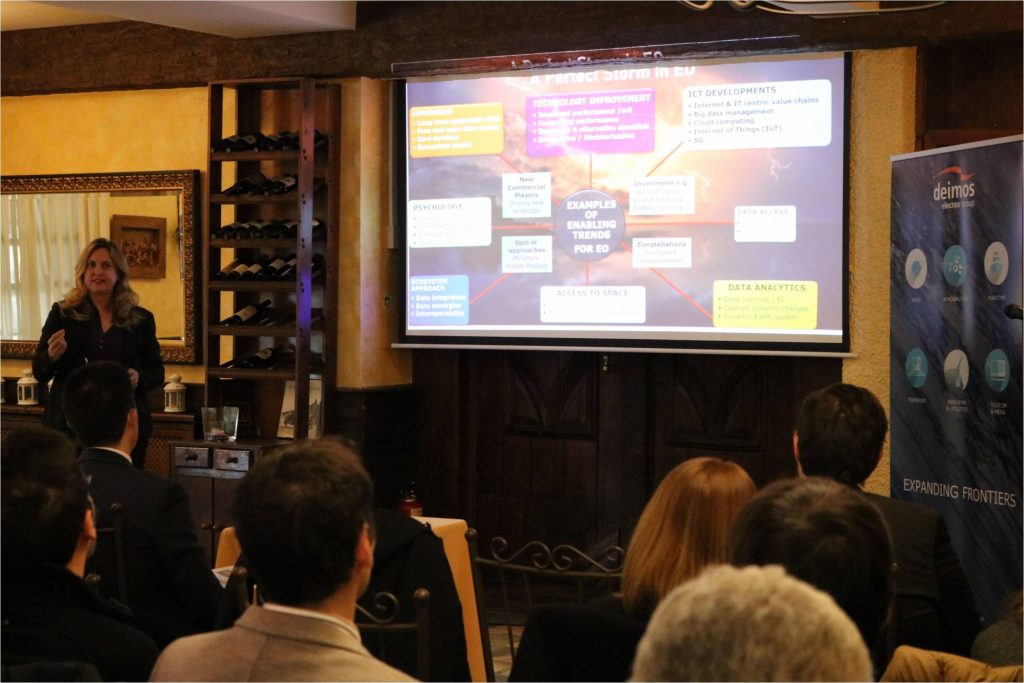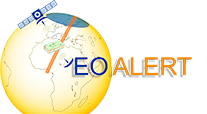On November 27, the first Workshop of the EO-ALERT project, funded by EU-H2020 and led by Deimos Space, took place in Madrid. The main objective of the Workshop was to present the current status of the project and its future applications.
The EO-ALERT project, developed by a consortium of entities (Deimos Space, DLR, Technische Universität Graz, Politecnico di Torino, OHB Italia and Deimos Imaging together with AEMET as a third part) and coordinated by Deimos Space, aims to define the new generation of data processing chains by moving the processing from ground segment, where it is currently carried out, to onboard the satellite and drastically reducing the latency when getting information. The possible civil applications of this innovative project are several: from early warning of atmospheric disasters, of great relevance to help reduce the consequences of climate change, to control of vessels on the high seas, including the possible monitoring of habitat to help conservation of endangered species.
EO-ALERT solves the challenge of processing Earth Observation (EO) data with very low latency through a combination of innovations in the integrated elements of the data and communications chain. Specifically, the architecture presents innovative technological solutions, which include: on-board image generation and processing to obtain EO products and alerts for SAR and optical payloads, using Artificial Intelligence (AI) techniques and machine learning; onboard data compression and encryption based on AI; onboard reconfigurable data management; high-speed avionics on board; and high-speed communication links of reconfigurable data to the ground.
The Workshop brought together actors from different fields (Universities, National Agencies, International Agencies, Research and Development Centers, Industry) with the aim of promoting dialogue and the exchange of ideas between Earth Observation service providers and end users, as well as among academics and industry professionals.

Deimos Space CEO Ismael López welcomes the EO-ALERT workshop attendees and presents Deimos Space assets




